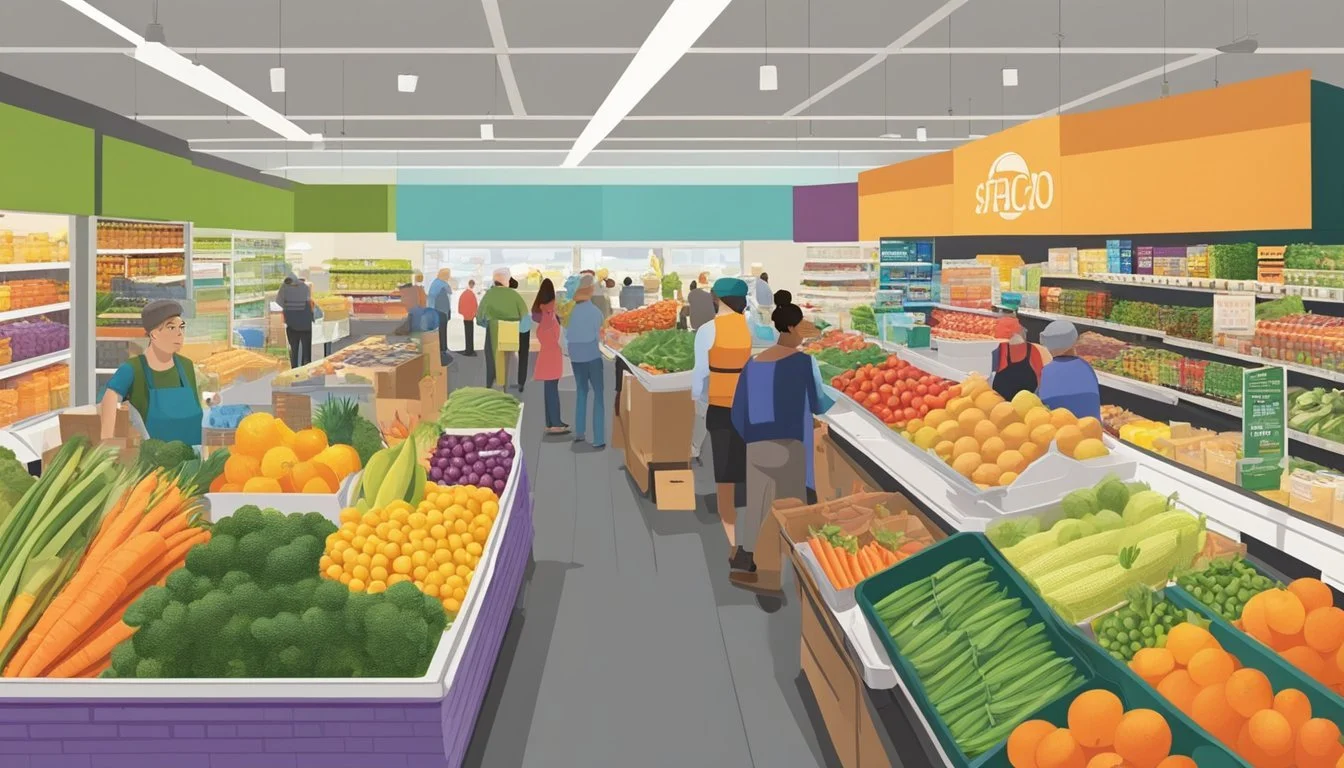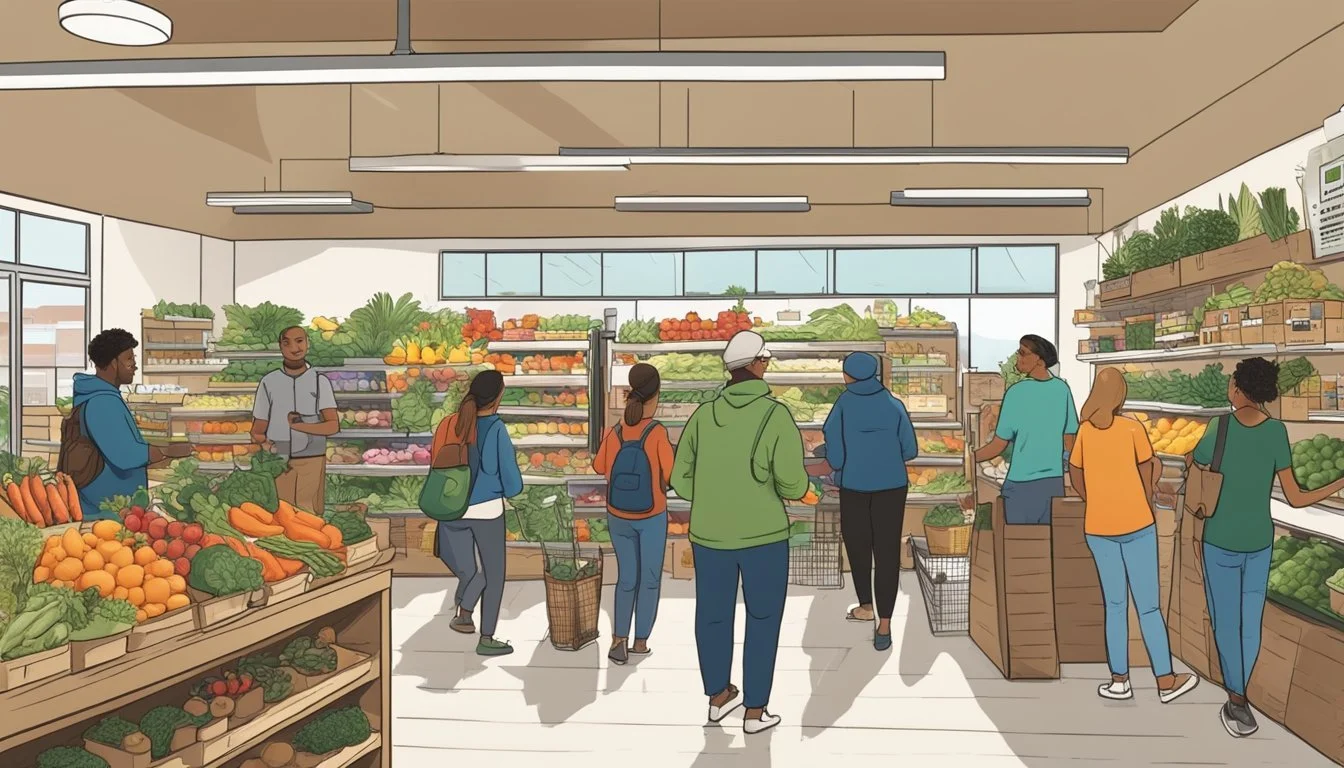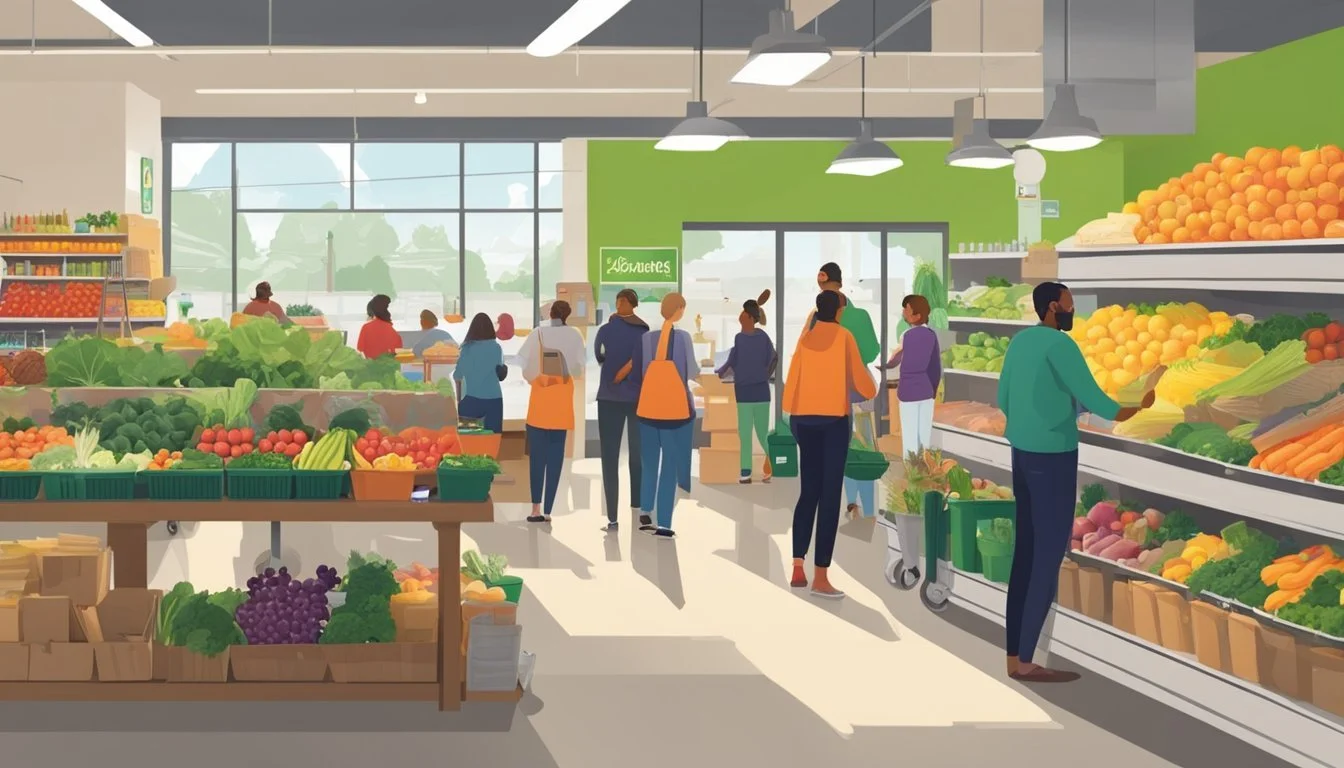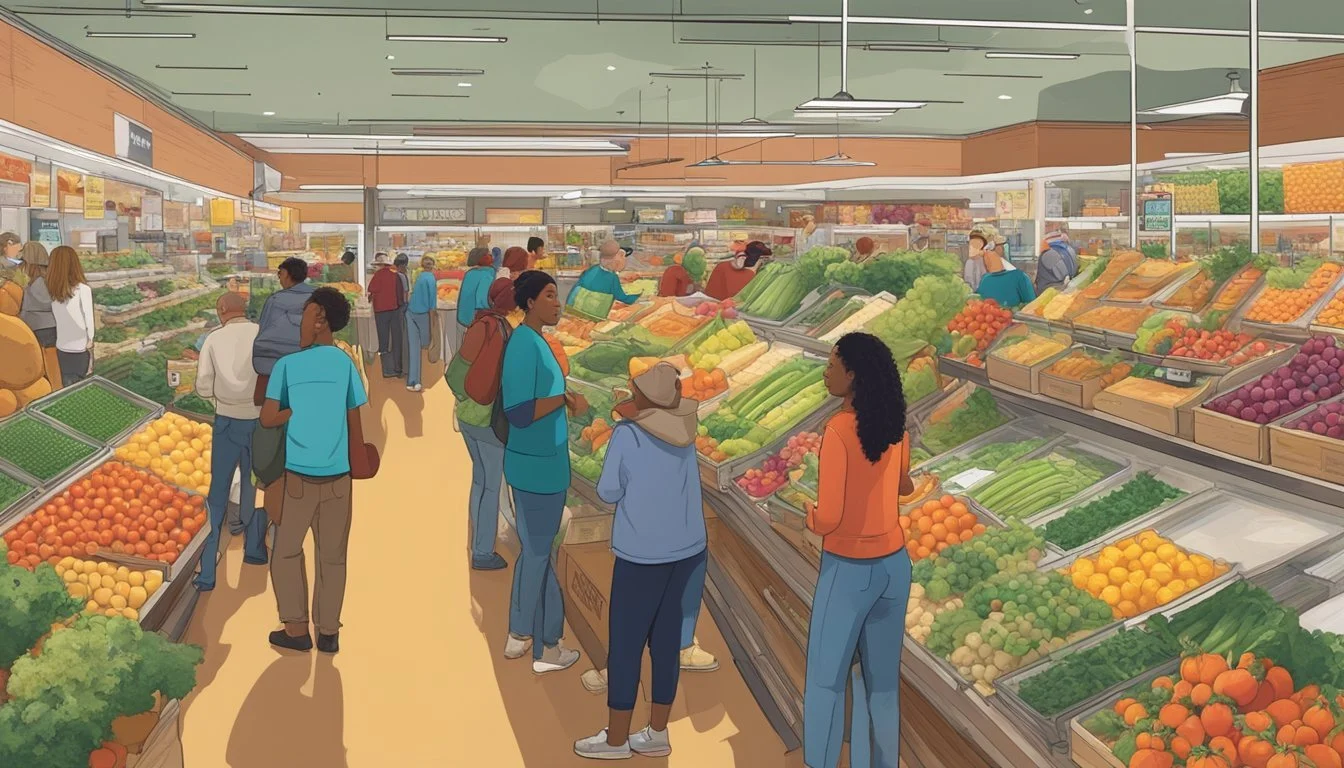Guide to Food Co-Ops in Denver, CO
Your Essential Resource for Local, Community-Based Groceries
Denver, Colorado is a bustling city with a vibrant food scene that extends beyond restaurants and farmers' markets to include a growing community of food co-ops. These cooperatives are member-owned and -operated establishments providing a variety of locally grown food and other locally made products. They offer a sustainable alternative for consumers looking to support local producers and engage with their community.
Food co-ops in Denver are known for emphasizing organic and locally sourced goods, reinforcing a strong connection between the city's health-conscious residents and the bountiful produce of the High Plains and Rocky Mountain Front Range. With several options available, such as the High Plains Food Cooperative and the Westwood Food Cooperative, these organizations also foster neighborhood engagement by offering access to fresh, quality food in areas where there might otherwise be limited options.
Each co-op in Denver operates with its own unique origin and vision, but all share the common goal of promoting local sustainability, offering fresh food access, and supporting local agriculture. They tend to not only be a place to shop but also serve as educational resources, teaching about nutrition and food preparation. Through these community-driven initiatives, Denver's food co-ops play a crucial role in the local food supply chain and contribute to the overall resilience and cohesiveness of the city's neighborhoods.
What Is a Food Co-Op?
A food co-op, recognized as a cornerstone of conscientious consumption, stands as a grocery entity driven by community ownership and democratic control. Its unique structure prioritizes food quality, education, and investment in the local economy.
Co-Op Principles
Food co-ops are built on a set of values that distinguish them from conventional grocery stores:
Voluntary and Open Membership: They are voluntary organizations open to all individuals willing to accept the responsibilities of membership.
Democratic Member Control: Co-ops are democratic organizations controlled by their members, who actively participate in setting policies and making decisions.
Members' Economic Participation: Members contribute equitably to the capital of their co-op and control it democratically.
Autonomy and Independence: Co-ops are autonomous, self-help organizations controlled by their members.
Education, Training, and Information: Co-ops provide education and training for their members and the public to contribute effectively to the development of their co-ops.
Cooperation Among Cooperatives: Co-ops serve their members most effectively by working together through local, national, regional, and international structures.
Concern for Community: Co-ops work for the sustainable development of their communities through policies approved by their members.
History of Food Co-Ops
The roots of food co-ops can be traced to the Rochdale Society of Equitable Pioneers, established in 1844 in England. This group formed a cooperative business to provide high-quality, affordable food in response to the industrial revolution's effects on workers. They set the Rochdale Principles, which have come to guide modern co-ops.
In the United States, the food cooperative movement gained extensive ground in the 1960s and 1970s, aligning perfectly with the era's social change mindset. This period saw a surge in food co-ops, mostly in response to a growing demand for natural and organic foods and a push for stronger community engagement in food systems. Denver, CO, being a city that values community and sustainable living, reflects these values through its vibrant food co-op scene.
Benefits of Joining a Co-Op
When individuals join a food cooperative in Denver, they connect with a community-focused entity that provides economic advantages while supporting health and nutrition through access to quality, often locally-sourced foods.
Economic Advantages
Food cooperatives often operate with the well-being of their members as the primary goal, resulting in notable financial perks. Members typically enjoy shopping discounts, which reduce the cost of purchases across a range of products. Furthermore, they may receive patronage refunds, periodic repayments based on a proportion of their purchasing activity, which further augments their economic benefit. Although less common, some cooperatives distribute dividends reflecting the amount of shares a member owns in the cooperative.
Shopping Discounts: Save on each purchase, enhancing value.
Patronage Refunds: Receive a share of the cooperatives' profits.
Dividends: Potentially gain from invested shares, though rare.
Health and Nutrition
Joining a food co-op in Denver offers more than economic benefits; it fosters improved health and nutritional outcomes for its members. Members have access to a variety of organic produce and locally grown food, ensuring that the products they consume are not just fresh but also of the highest quality. Since co-ops often purchase items in bulk, they can offer competitive prices. This approach also allows members to support local farmers and producers, ensuring the food's quality and freshness.
Organic Produce: High-quality and pesticide-free options available.
Locally Grown Food: Support for local agriculture enhances freshness and sustainability.
Finding Co-Ops in Denver
When exploring food co-ops, Denver offers a variety of options ranging from local grassroots networks to markets with a focus on supporting regional agriculture.
Denver Metro Area
Food co-ops in the Denver Metro area take pride in providing a platform that supports local farmers and offers fresh, locally-grown produce to the community. The GrowHaus, rated highly by locals, regularly provides a selection of weekly organic food boxes, priced at around $37, with discounts available for neighborhood residents. Another notable food co-op is the Westwood Food Cooperative, which not only prioritizes fresh, specialty food but also embodies the cooperative spirit by being owned and operated by community members in Denver’s Southwest.
Expanded Region
Beyond the immediate Denver area, the co-op community extends to serve a wider region, including cities like Boulder and Longmont. Producers and consumers across the High Plains and the Rocky Mountain Front Range come together to form networks such as the High Plains Food Cooperative. This grassroots initiative is vital in uniting interests in locally sourced food and artisanal products. Additionally, farmers' markets, such as the one in Cherry Creek, enrich the local culture by offering produce from family farms, thereby strengthening the connection between Denver and its surrounding areas.
How to Join a Food Co-Op
Joining a food co-op in Denver, CO, requires individuals to become members, which often involves a financial investment and commitment to the cooperative principles that underpin the co-op community.
Membership Types
Denver's cooperative grocery stores typically offer various membership types to cater to a diverse community. One may encounter:
Full membership: Involves a one-time capital investment that is usually refundable and a modest join fee. This investment goes towards supporting the infrastructure and operations of the co-op.
Payment plan membership: Some co-ops offer the option to pay the membership investment over a period of time, allowing greater accessibility for all community members.
Membership Benefits
Becoming a member of a food co-op in Denver brings several benefits, which can include:
Financial Savings: Members might receive discounts on products, special member-only deals, and even year-end rebates based on the co-op's profits.
Community Engagement: They often have a voice in the co-op's decision-making processes and can attend meetings, participate in votes, and run for the board.
Quality and Sustainability: Members usually benefit from high-quality, locally-sourced products that support sustainable and ethical food systems.
Membership in a food co-op is a way to invest in one's community while enjoying the reciprocal benefits of being part of a co-op business.
Co-Op Shopping Guide
When shopping at a Denver food co-op, customers can expect a curated selection of groceries, including fresh produce and beverages that reflect both quality and community values.
Product Selection
Co-ops in Denver offer a wide range of grocery items tailored to meet the expectations of their members and shoppers. The selection often includes:
Local: Products sourced from nearby farms and businesses.
Organic: A variety of certified organic fruits, vegetables, and pantry items.
Health-focused: Alternative dietary options like gluten-free, vegan, and non-GMO products.
Beverages: Local and organic coffee, tea, dairy and non-dairy milks, juices, and artisanal sodas.
Bulk items: Purchase grains, nuts, spices, and more in the quantity you need.
Seasonal Products
Members and visitors can enjoy the best of Colorado's seasonal bounty. Co-ops typically offer:
Spring/Summer: Fresh berries, leafy greens, stone fruits, and heirloom tomatoes.
Fall/Winter: Root vegetables, squashes, apples, and hearty greens.
By shopping seasonally, customers support sustainable agriculture and get to enjoy produce at the peak of its flavor and nutritional content.
Participation and Volunteering
In Denver, CO, food co-ops operate with the core belief that community involvement is pivotal for their success. They rely on members and volunteers to perform a range of tasks, ensuring the accessibility of nutritious foods to various neighborhoods, particularly those facing food insecurity.
Types of Volunteer Opportunities:
Food Sorting: Volunteers assist in organizing and sorting fresh produce for distribution.
Food Pickup and Delivery: Individuals engage in collecting and delivering food from vendors to food access points.
Benefits to Volunteers:
Community Engagement: Volunteers actively contribute to their community's well-being.
Education: Participation provides an opportunity to learn about food systems and local agriculture.
Volunteering Requirements:
Time Commitment: Most opportunities range from a couple of hours weekly to one-time events.
Application: Potential volunteers typically need to complete an application process.
Denver Food Rescue exemplifies such involvement, with volunteers as the backbone of operations, picking up and delivering fresh produce. Meanwhile, organizations like Denver Community Food Access Coalition bring together entities focusing on emergency assistance, urban agriculture, and policy reform. Entities like Food Bank of the Rockies offer volunteering six days a week, with mobile pantry locations further extending their reach.
Members of the community who participate in these efforts often benefit from a sense of camaraderie and fulfilment in knowing they directly contribute to the sustainability of food access and education within Denver. It's not just about volunteering; it's about being part of a collective effort that values inclusive, healthful food distribution systems.
Reviews and Experiences
In Denver's vibrant food co-op scene, customer testimonials and community feedback are crucial for newcomers seeking authentic engagement with local food purveyors. Reviews on platforms like Yelp and user-submitted photos contribute to the narrative of each co-op's service and the overall celebration of Denver's community-based food initiatives.
Customer Testimonials
Patrons regularly praise The GrowHaus and Westwood Food Cooperative for their fresh selections and community impact. One user recalled, "Excellent weekly co-op organic food boxes at $37 each, a steal for the quality!" Photos attached to such reviews often showcase colorful arrays of produce and the bustling atmosphere of market days.
Community Feedback
Feedback from the community emphasizes the importance of co-ops in neighborhood celebrations and events. For instance, Denver Urban Gardens has been highlighted for fostering community gatherings and providing a space for local food appreciation. The consensus in Yelp reviews suggests a strong appreciation for the role these co-ops play in promoting healthy, sustainable lifestyles in Denver.







